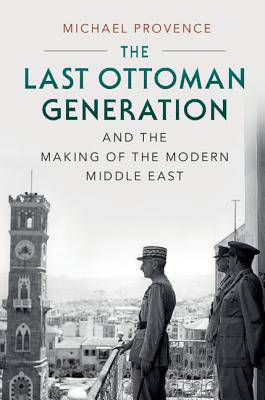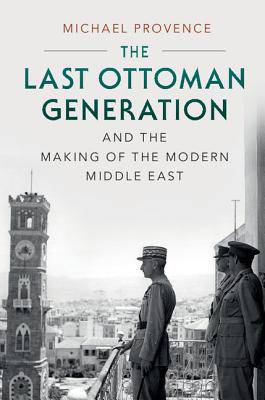
- Afhalen na 1 uur in een winkel met voorraad
- Gratis thuislevering in België vanaf € 30
- Ruim aanbod met 7 miljoen producten
- Afhalen na 1 uur in een winkel met voorraad
- Gratis thuislevering in België vanaf € 30
- Ruim aanbod met 7 miljoen producten
Zoeken
The Last Ottoman Generation and the Making of the Modern Middle East
Michael Provence
Paperback | Engels
€ 44,95
+ 89 punten
Uitvoering
Omschrijving
The modern Middle East emerged out of the collapse of the Ottoman Empire, when Britain and France partitioned the Ottoman Arab lands into several new colonial states. The following period was a charged and transformative time of unrest. Insurgent leaders, trained in Ottoman military tactics and with everything to lose from the fall of the Empire, challenged the mandatory powers in a number of armed revolts. This is a study of this crucial period in Middle Eastern history, tracing the period through popular political movements and the experience of colonial rule. In doing so, Provence emphasises the continuity between the late Ottoman and Colonial era, explaining how national identities emerged, and how the seeds were sown for many of the conflicts which have defined the Middle East in the late twentieth and early twenty-first centuries. This is a valuable read for students of Middle Eastern history and politics.
Specificaties
Betrokkenen
- Auteur(s):
- Uitgeverij:
Inhoud
- Aantal bladzijden:
- 314
- Taal:
- Engels
Eigenschappen
- Productcode (EAN):
- 9780521747516
- Verschijningsdatum:
- 18/08/2017
- Uitvoering:
- Paperback
- Formaat:
- Trade paperback (VS)
- Afmetingen:
- 167 mm x 233 mm
- Gewicht:
- 526 g

Alleen bij Standaard Boekhandel
+ 89 punten op je klantenkaart van Standaard Boekhandel
Beoordelingen
We publiceren alleen reviews die voldoen aan de voorwaarden voor reviews. Bekijk onze voorwaarden voor reviews.











